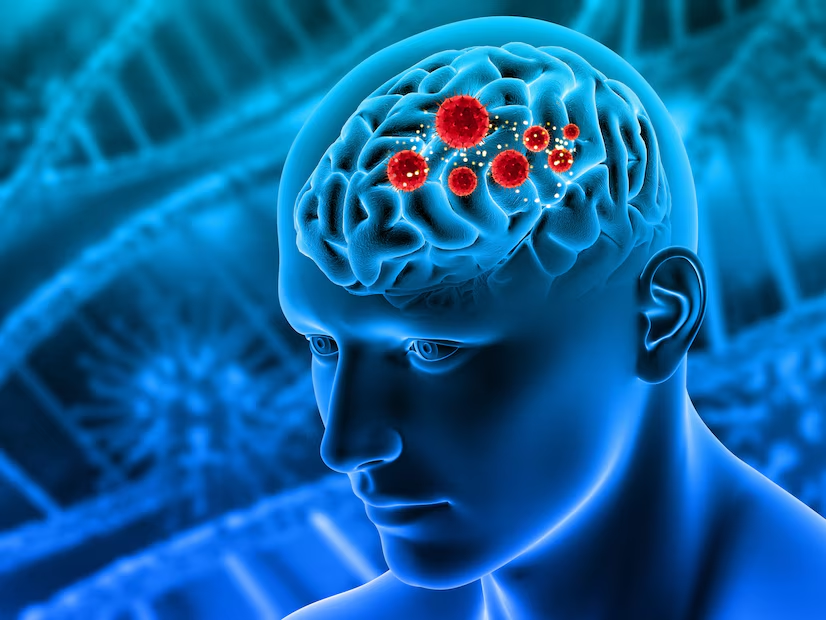- Home
- About Us
- Services
- Treatments
- Acid Reflux
- Allergic Rhinitis
- Alcoholic Fatty Liver
- Ankylosing Spondylitis
- Anxiety / Stress
- Arthritis
- Asthma
- Cervical Spondylitis
- Celiac Infection
- Colitis
- Constipation
- Dermatitis
- Detox Programme
- Diabetes (Madhumeha)
- Hair Fall
- Headache
- Hormonal Imbalance
- Hypertension
- Insomnia
- Irritable Bowel Syndrome
- Lungs Disease
- Migraine
- Neurological Disorder
- Non Alcoholic Fatty Liver
- Obesity Management
- Pain Management
- PCOD
- PCOS
- Sciatica Pain
- Sinusitis
- Skin Disorder
- Slip Disc
- Stress Management
- Thyroid
- Weight Management
- Techno-Ayurveda
- Media
- Blog
- Contact Us

Neurological Disorder
Understanding Neurological Disorder
Neurological disorders refer to a broad range of conditions that affect the brain, spinal cord, nerves, and muscles. These disorders can impact a person’s ability to perform basic functions such as moving, thinking, speaking, or coordinating their body. Neurological disorders can be classified into various categories based on their cause, affected region, and symptoms.
Symptoms of Neurological Disorder
1. Headaches
2. Muscle Weakness or Paralysis
3. Numbness or Tingling
4. Memory Loss or Cognitive Decline
5. Seizures
Panchakarma Ayurvedic Treatment for Neurological Disorder
Panchakarma offers a holistic and natural approach to treating neurological disorders. By balancing the doshas, eliminating toxins, and rejuvenating the nervous system, Ayurvedic therapies can significantly improve the quality of life for individuals suffering from conditions such as Parkinson’s disease, multiple sclerosis, epilepsy, and other neurological disorders. A personalized treatment plan developed by an experienced Ayurvedic practitioner is essential for addressing the specific needs of each individual and providing the best outcomes.
How Panchakarma Helps in Neurological Disorders:
- Balancing Vata dosha: Since Vata governs the nervous system, it is essential to restore its balance in neurological conditions. Many neurological disorders, such as Parkinson’s disease and multiple sclerosis, are related to Vata imbalances.
- Detoxification: Toxins accumulated in the body (ama) can aggravate neurological disorders and cause inflammation, pain, and degeneration. Panchakarma helps detoxify the body and eliminate harmful substances.
- Rejuvenation: Ayurveda believes in rejuvenating tissues and restoring cellular health. This helps to repair the damage to the nervous system caused by the disorder and improve its functionality.
- Nourishment of the nervous system: Specific Ayurvedic treatments aim to nourish and rejuvenate the nervous system, enhancing mental clarity, cognitive function, and overall vitality.
Benefits of Panchakarma for Neurological Disorders:
- Reduces Inflammation and Pain: The treatments help to reduce inflammation and improve blood circulation, providing relief from pain and stiffness associated with neurological conditions.
- Enhances Nervous System Function: Panchakarma helps nourish and rejuvenate the nervous system, improving cognitive function, memory, and coordination.
- Balances Vata Dosha: By restoring balance to Vata dosha, Panchakarma helps reduce the symptoms of neurological disorders caused by Vata imbalances, such as tremors, spasms, and loss of motor function.
- Detoxifies and Rejuvenates the Body: The therapies detoxify the body, eliminate accumulated toxins, and rejuvenate tissues, which can help slow the progression of degenerative neurological diseases.
- Promotes Relaxation and Stress Relief: Panchakarma therapies like Shirodhara and Abhyanga provide deep relaxation and stress relief, which can improve overall well-being and support the body’s healing process.
FAQs of Neurological Disorder
Neurological disorders are conditions that affect the brain, spinal cord, or nerves throughout the body. These disorders can interfere with normal neurological function, leading to symptoms like pain, weakness, movement problems, cognitive impairments, and changes in behavior. Examples of neurological disorders include Alzheimer's disease, Parkinson's disease, epilepsy, multiple sclerosis, and stroke.
Symptoms of neurological disorders can vary widely depending on the condition, but common symptoms include:
- Headaches or migraines
- Seizures or convulsions
- Numbness or tingling in limbs
- Memory loss or confusion
- Muscle weakness or paralysis
- Difficulty walking or maintaining balance
- Vision problems or dizziness
- Changes in speech or language abilities
- Cognitive difficulties, including attention or problem-solving issues
Neurological disorders can have various causes, including:
- Genetics: Inherited genetic mutations can lead to conditions like Huntington's disease or certain forms of epilepsy.
- Infections: Viral or bacterial infections can cause damage to the nervous system, such as meningitis or encephalitis.
- Trauma: Head injuries or spinal cord injuries can result in neurological problems.
- Degeneration: Age-related conditions like Alzheimer's or Parkinson's disease involve the gradual degeneration of brain cells.
- Environmental factors: Exposure to toxins or harmful substances can damage the nervous system.
- Autoimmune responses: In autoimmune disorders like multiple sclerosis, the immune system attacks the body's own nerve tissues.
Diagnosing a neurological disorder typically involves:
- Medical history and symptoms review: The doctor will ask about symptoms, family history, and any potential risk factors.
- Neurological examination: A physical exam to assess motor function, reflexes, coordination, and sensory perception.
- Imaging tests: MRI or CT scans to visualize the brain, spinal cord, and nerves.
- Electroencephalogram (EEG): Measures electrical activity in the brain, often used for conditions like epilepsy.
- Blood tests: To check for infections, inflammation, or autoimmune diseases that may affect the nervous system.
- Cerebrospinal fluid analysis: In certain cases, a lumbar puncture (spinal tap) may be done to analyze cerebrospinal fluid for signs of infection or disease.
Treatment for neurological disorders varies depending on the specific condition but may include:
- Medications: Anticonvulsants for epilepsy, dopaminergic medications for Parkinson's disease, or anti-inflammatory drugs for conditions like multiple sclerosis.
- Surgery: In cases like brain tumors, spinal cord injuries, or some forms of epilepsy, surgery may be necessary.
- Physical therapy: To improve motor function, balance, and coordination.
- Cognitive therapy: For conditions affecting memory or mental function, like Alzheimer's or dementia.
- Lifestyle changes: Stress management, exercise, and a healthy diet can help manage symptoms and improve quality of life.
- Supportive care: For chronic conditions, long-term care strategies may be necessary, including caregiver support and rehabilitation.
